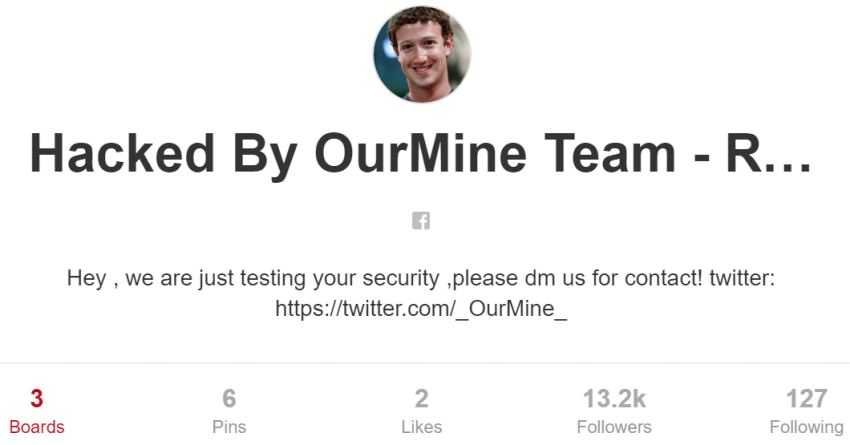A hacking group has claimed responsibility for breaching the Facebook CEO's online accounts Mark Zuckerberg, for the second time this year.
On Tuesday, the hacking group known as OurMine announced that it had been breached account of Pinterest used by Zuckerberg. To prove it, they uploaded a new message to the account containing the group's web address.
So the "resume" of the Pinterest account said: "Don't worry, we're just doing security tests."
The message left by hackers in Mark Zuckerberg's account within a few minutes was removed.
The OurMine team is well known for targeting high profile users such as company CEOs and business executives in general technology. Hackers often deface their online accounts by adding their group name and a contact address.
As they have said in older hacks, they hope that this way, they will lead their victims to contact with them for security advice. The group's website, moreover, says it offers security services.
The hackers announced the hack via email post officey to a ZDNet editor, providing Zuckerberg's nickname and the password he uses on Twitter. Of course ZDNet didn't publish the data for obvious reasons.
The team said the head of Facebook had triggered two-factor authentication after the first hack that was made earlier this year. According to hackers, the phone number used in the account expires at "86".
The hackers said they also said their Twitter password was the former Gmail password used by Zuckerberg, which changed six months ago.
Of course, ZDNet did not verify the above data as it would violate existing legislation.





